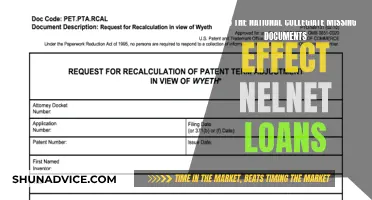
When it comes to commercial real estate, buyers have the option to assume an existing loan from the seller, known as an assumable loan. This means that the buyer can take over the seller's mortgage with the same terms, including the interest rate and loan amount. While assumable loans can offer benefits such as reduced time and costs, there are also potential drawbacks, including a longer approval process and the possibility of a higher down payment. It's important to note that not all loans are assumable, and lenders typically have the right to approve the loan transfer, considering the financial qualifications of the new borrower.
| Characteristics | Values |
|---|---|
| Definition | A type of loan that the new purchaser of the property can take over |
| Buyer's Advantage | Lower interest rate, fewer fees to the lender, access to financing that may not be available otherwise |
| Seller's Advantage | Makes a problematic property more attractive to potential buyers, helps sell the property faster |
| Types of Loans | HUD Multifamily Loans, CMBS Loans, Private Loans, Government-backed Loans |
| Loan Terms | Preserves the original loan terms, including the interest rate and loan amount |
| Buyer's Disadvantage | Longer approval process, higher down payment, less flexibility with loan terms |
| Seller's Disadvantage | Prepayment penalties if the buyer secures a new loan, less beneficial results |
| Lender's Disadvantage | Lender may not approve the transfer if the buyer is a financial risk |
What You'll Learn

What is an assumable loan?
An assumable loan is a type of loan that the new buyer of a property can take over from the seller. In other words, the buyer assumes the existing mortgage loan and its terms, including the interest rate. This means that the buyer agrees to make future payments based on the original loan terms.
Assumable loans are common in commercial real estate and can be advantageous for both buyers and sellers. Buyers may benefit from better loan terms, such as a lower interest rate, fixed interest rate, or longer loan term. They can also save time and money on the loan assumption process, which requires less documentation and typically incurs lower lender fees. Additionally, assumable loans can help buyers access financing they may not have been able to obtain independently.
For sellers, assumable loans can make their property a more attractive deal, potentially attracting more buyers and facilitating a faster sale. Moreover, assumable loans can help sellers avoid significant prepayment penalties when selling their property.
However, it's important to note that not all loans are assumable, and even when they are, there are often conditions attached. The new buyer must be approved by the lender, who assesses the buyer's financial qualifications, including their ability to repay the loan. The lender typically has the right to approve or disapprove of the loan transfer based on their evaluation of the buyer's financial risk.
Additionally, some loans may have restrictive terms, and the down payment requirements can vary. In some cases, the current loan on the property could be more complicated, leading to a longer approval process than obtaining a new loan. Therefore, it's crucial for both buyers and sellers to carefully consider the potential pros and cons of assumable loans before proceeding.
VFW Loan Crutches: What You Need to Know
You may want to see also

Pros and cons of assumable loans
Assumable loans allow a new buyer to take over the existing loan of a property's seller. This means that the new buyer assumes the remaining balance, repayment schedule, and interest rate of the loan. This type of loan is particularly attractive when mortgage rates are high, as buyers could save money by taking over a loan at a lower interest rate.
Pros of Assumable Loans
Assumable loans can offer several benefits to both buyers and sellers:
- Time savings: The loan assumption process can be faster than securing a new loan, taking as little as 30 days or even less.
- Cost savings: The shorter process and reduced documentation for assumable loans can result in lower lender fees compared to obtaining a new loan.
- Better terms: Buyers may be able to secure more favourable loan terms, such as a lower interest rate, fixed interest rate, or a longer repayment period.
- Lower down payment: The down payment for an assumable loan is based on the difference between the loan amount owed and the sales price, which can result in a lower down payment if the owner has low equity.
- Attractive to more buyers: The above advantages can make a property with an assumable loan more attractive to potential buyers and facilitate a quicker sale.
- Avoid prepayment penalties: Sellers can benefit from assumable loans as they can help them avoid significant prepayment penalties when selling their property.
- Access to financing: Assumable loans can provide buyers with access to financing they may not have been able to obtain independently.
Cons of Assumable Loans
However, there are also some potential drawbacks to assumable loans:
- Longer approval process: In some cases, the approval process for an assumable loan can be longer, especially if the current loan is complicated.
- Higher down payment: If the owner has significant equity, the down payment for an assumable loan may be higher than that of a new loan.
- Worse terms: The terms of an assumable loan may not be as favourable as current market terms, resulting in less favourable conditions for the buyer.
- May not qualify for assumption: Lenders have discretion in approving buyers for assumable loans and may not approve the transfer if they deem the buyer to be a financial risk.
- Limited loan options: Not all types of loans are assumable, and in some cases, it may be more advantageous for buyers with good credit to obtain a conventional loan.
- Mortgage insurance: Some assumable loans, such as FHA loans, require mortgage insurance payments for the life of the loan, which can negate the benefits of a lower interest rate.
China's Debt: America's Multi-Million Dollar Question
You may want to see also

Types of assumable loans
An assumable loan is a type of loan that the new purchaser of the property can take over. In other words, the existing loan is transferred from the current borrower to the new borrower. This is especially useful when the existing mortgage rate is lower than the current market rates.
FHA Loans
FHA loans are assumable, but they require both sellers and buyers to satisfy specific FHA criteria. For example, the buyer must have a credit score of at least 580 to qualify for a down payment of only 3.5% of the purchase price. The buyer must also meet the minimum credit score and debt-to-income ratio (DTI) requirements for this type of real estate transaction.
VA Loans
VA loans are available to qualified military members and their spouses. To assume a VA loan, the buyer does not need to be a member of the military, but they will need approval from the VA Regional Loan Center and the lender. VA loans are notable for their zero down payment requirement.
USDA Loans
USDA loans are offered to buyers of rural properties and require no down payment. To assume a USDA loan, the buyer must meet certain income and credit requirements and receive approval from the USDA to transfer the title.
HUD Multifamily Loans
HUD multifamily loans are assumable for a small fee of between 0.05% and 1% of the original loan amount.
CMBS Loans
CMBS loans are also assumable for a small fee, similar to HUD multifamily loans.
Underwriter's Decision: Approving Your Loan Application
You may want to see also

How to get an assumable loan
An assumable loan is a type of loan that the new purchaser of the property can take over. It is designed to allow the buyer of the commercial property to take over the loan held by the existing property owner when the property is sold.
- Confirm that the loan is assumable: Check the loan agreement or ask the existing lender. The lender can also confirm that the loan is in good standing.
- Prepare for the costs: You will need to make a down payment, but the amount depends on how much equity the seller has. Once the assumption is approved, you will also have to pay an assumption fee and potentially other costs.
- Submit your application: You will need to fill out an application, provide proof of income and assets, and submit to a credit check.
- Close and sign liability release: If the assumption is approved, you will need to fill out paperwork, just like with any other type of loan.
- Get lender approval: Lenders will need to determine if the borrower has the qualifications to maintain the loan. They will look at the borrower's financial means, including their income statements, asset lists, and creditworthiness, to ensure they can repay the loan.
- Understand the risks: The approval process can take longer, and the terms of the loan may not be as favourable as a new loan. There is also a risk that the lender will not approve the transfer if they believe there is too much risk.
It is important to note that not all loans are assumable, and there may be potential drawbacks, so it is essential to carefully consider all aspects before deciding to pursue an assumable loan.
Seller's Role in FHA Loan Process: What to Know?
You may want to see also

Why are assumable loans rare?
Assumable loans are a type of loan that allows the new purchaser of a property to take over the loan of the property's existing owner. In the context of commercial real estate, assumable loans can be beneficial as they reduce the time spent securing a loan. However, assumable loans are relatively rare, and there are several reasons for this.
Firstly, the approval process for assumable loans can be lengthy. Lenders typically have the right to approve the loan transfer and will assess the financial qualifications of the new borrower to ensure they can maintain the loan. This process can be time-consuming and may not always result in approval.
Secondly, assumable loans may not always offer favourable terms. In some cases, the down payment for an assumable loan could be higher, and the loan terms may not be as competitive as those available in the current market. Assumable loans may also come with restrictive terms, such as requiring the buyer's financials and experience to be similar to the previous owner.
Another reason assumable loans are rare is that they may involve additional costs. For certain types of loans, such as HUD multifamily loans, a small fee is required for a new buyer to assume the loan. This fee can range from 0.05% to 1% of the original loan amount.
Furthermore, assumable loans can be complex and may not always provide a clear advantage over obtaining a new loan. In some cases, the current loan on the property could be more complicated than what could be achieved with a new loan, making the approval process more protracted.
Finally, sellers may face prepayment penalties if the buyer secures a new loan instead of assuming the existing debt. This can be a costly process for the seller and may yield less beneficial results, making them less inclined to offer an assumable loan.
FAFSA Loans: Accepted in the UK?
You may want to see also
Frequently asked questions
An assumable loan is a type of loan that the new purchaser of the property can take over. The buyer assumes the existing debt on the property instead of obtaining new debt through a commercial loan.
The main advantage of assumable loans is that they are quicker to secure than a traditional commercial loan. They also often have lower interest rates and require a lower down payment.
The approval process for an assumable loan can be longer than that of a new loan, and the terms may not be as favourable. The buyer may also have to pay a higher down payment and will have to work with the existing lender.
The ability to assume a loan is often noted on the memorandum. If it is not noted, you will need to ask the owner.







